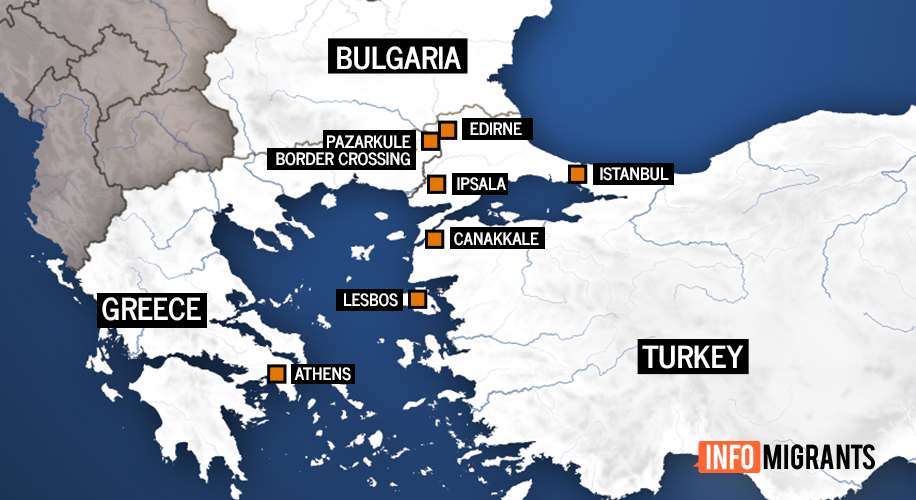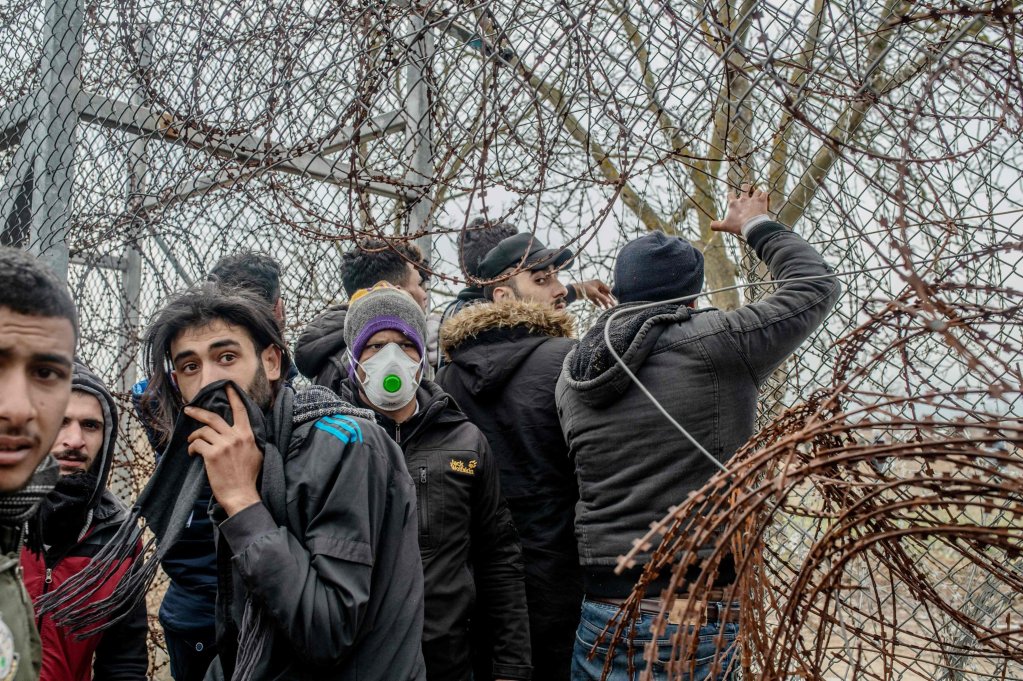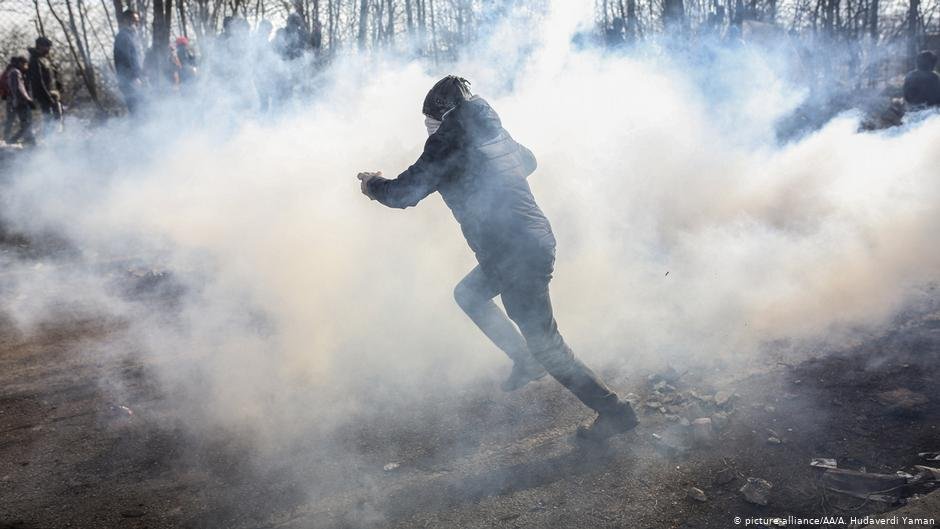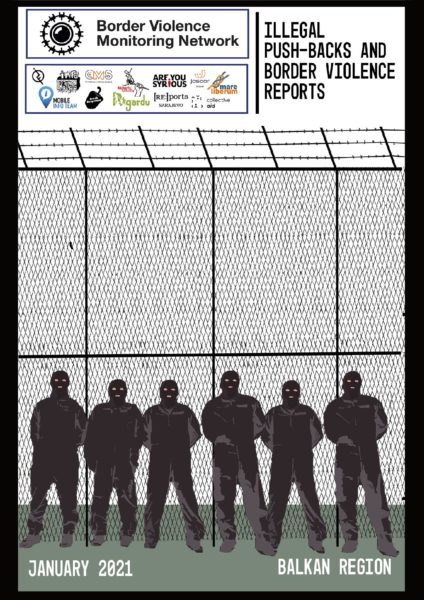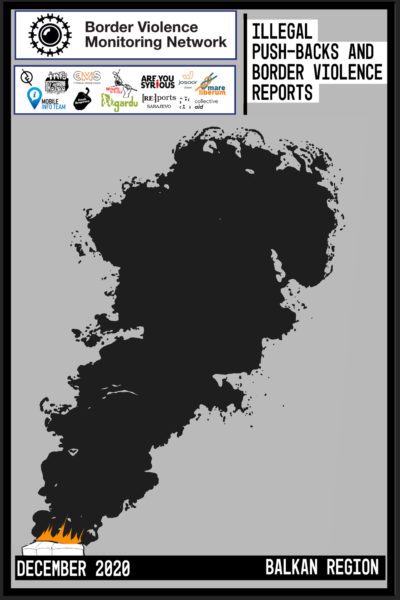An update of the frequent pushbacks to Turkey since the end of April
Eva Schade
Josoor
Blog
On Friday, 01.05, another group of people were pushed back from Greece in the early morning. They had been picked up in and around the camp in Diavata where they had been staying for several months, many of them having already applied for asylum in Greece. Most of them had been beaten by the Greek police during the pushback. They were left with nothing - no money, no phones and no documentation. Our partners on the ground supplied them with food and water and an accommodation for the next few days.
 |
Hit by greek police |
On Saturday, 03.05, we were contacted about a group of young people who had crossed from Turkey to Greek territory on April 4th. Police intercepted them and left them on an island in the middle of the river, with no food or water, and with nothing to protect themselves. Part of the group were able to swim back to the Turkish coast, but one minor (male) and two others were unable to swim and remained on the islands. Nobody has heard from them since. The mother of the minor asked us to find out whether her son is still alive. But several days ago a dead, decomposed body was found on a bank of Evros river... Recently, another body washed up on the bank of Evros river. After sending the picture of the boy to the pathologist, he informed us that it was not the body we are looking for. This young boy is only one of many souls that was most likely lost in the Evros river.
On the same day, a young Afghani man contacted us. He had been pushed back more than 15 times from Serbia to North Macedonia to Greece to Turkey. We have since published his heart breaking story.
On 07.05, a group of 32 single men of different nationalities were pushed back to Turkey from Greece. Police picked them up from the Camp in Diavata, where they used to live on Tuesday 05.05, and took them to a prison near Diavata, where they were forced to spend the night. This was the first group who were pushed back without being physically beaten or robbed of their money, phones and personal belongings - only their jackets and belts were taken from them by authorities. This serves as yet another proof of how randomly and arbitrary the pushback “procedures” are conducted.
There have been daily incidents of shootings from the Turkish side of the border. We can’t be sure of the purpose as of yet, but we assume this might be an attempt to intercept pushbacks conducted by Greek forces.
On Saturday 09.05, a new group of 15 single men were pushed back by boat over the Evros from Greece, where our partners supplied them with food and water, and organized a place for them to rest. One of them told us his story:
When I first arrived in Greece, there were quarantine measures in place everywhere so I couldn't apply for asylum. It was another day of quarantine when I was arrested by police at Diavata camp. Police asked me if I had any documents and when I replied I did not, police told me that I had to come with them to get the papers. They immediately put me in the car with other refugees and brought us to the police station, one police officer brutally grabbed me from my neck and took all my belongings and deported me to Turkey. On the Turkish side, the Turkish army pushed us back to the Greek territory, then for the second time, the Greek army found us and pushed us back to the Turkish border. As I didn't want to stay in the forest or go back to Greece, because I had no food, water and money, eventually I decided to cross the river by myself.When I got to the Turkish side, I hid in the forest for two nights and a day after crossing the river by holding on to a barrel and floating so as not to sink in the river. I walked from the border to Istanbul.
On Tuesday 12.05, Greece pushed back 34 people whom our local partners met and supplied with food and a place to stay as they were exhausted after two nights in the fields. On Wednesday 13.05, another five people were pushed back from Bulgaria and were supported by our local partners. The same happened once again with another seven other people on 15.05.
After all of these horrific reports, pushbacks became even worse. On Saturday 17.05, a group of 82 people who were all registered in different Greek camps were pushed back. Most had been staying in Greece for a period of between 6 months and one year. 15 of them had been housed in a camp in Igoumenitsa, close to the Albanian border. The others were from different places all over Greece. They were taken from the camp and driven all across Greece, and were then subsequently kept in a facility close to the Turkish border for two days, before the Greek army pushed them back to Turkey, driving them across the Evros 10 at a time. The whole pushback lasted for only 30 minutes and took place in broad daylight. Human rights violations in Europe do not even have to happen secretly during the night anymore.
On Wednesday, 20.05, we were informed about another extremely severe case. A man had been in a car accident in Greece on May 3rd and was severely injured. He spent 11 days in the hospital, had surgery and had a cast on his broken leg. Upon release, the hospital called the police who came to pick him up and pushed him back to Turkey. Luckily our partner Common Sense Istanbul was ready and available to organize medical help in the middle of the night - during the lockdown.

On Thursday, 21.05, several groups were pushed back from Bulgaria and Greece, and our partners managed to support them all with food and water, and those most in need also with socks and shoes.
On Saturday 23.05, we received a voice message from an Iraqi man whom we had met at the Edirne border in March. He crossed to Greece, fell down, and was caught by the Greek police. They didn't subject him to physical violence but took his phone, documents and money and forced him into a car. There he met two Algerian people, who had crossed 4 days ago and fled from the police, but were beaten by local residents who broke their arms and legs and returned them to the police. They were all taken to a prison and locked in a small cell, with no bed or furniture in the room but packed full of many other refugees. They were transported in a van back to the river, with threatened physical violence if anyone dared to move. All of them were pushed back to Turkey.



